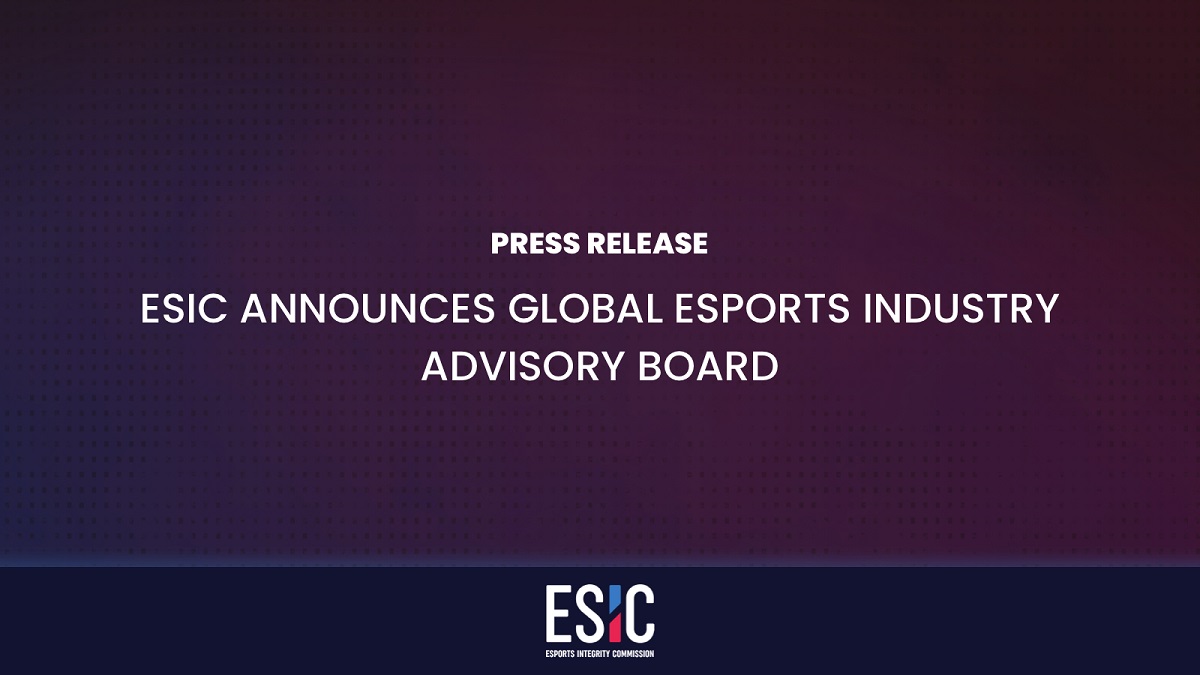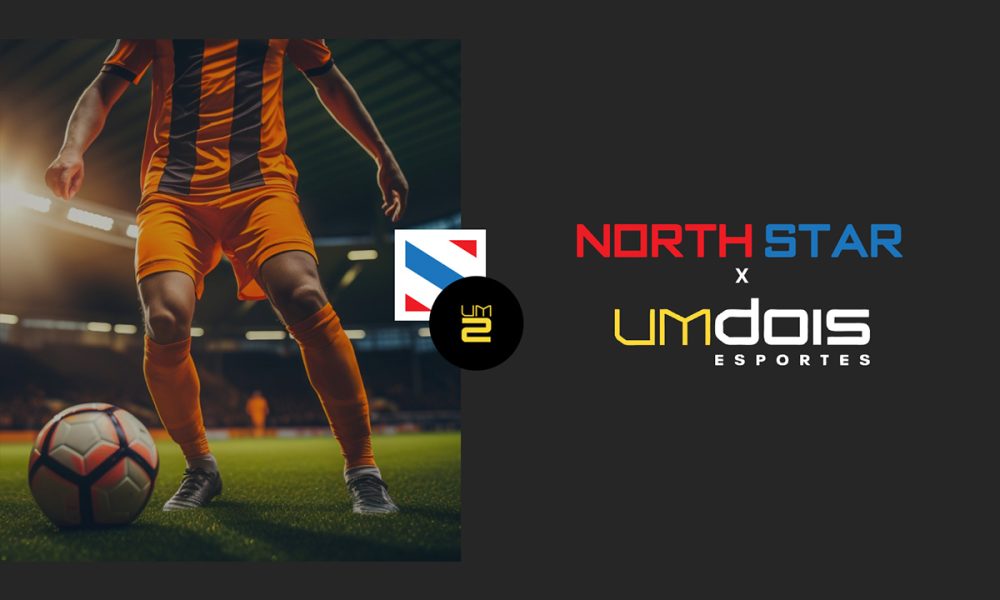

eSports
A Career in Esports: Working in the Esports business is similar to working in any other industry
Esports is a versatile industry with plenty of opportunities for professional gamers as well as other jobs
Many parents still believe that working in the esports business entails being an expert at video games or spending all day in front of a computer playing games. Esports/Video Games is a versatile industry and there is a huge scope for professional gamers as well as other jobs like casters, commentators, and other support staffs appointed by the esports tournaments like producers, editors, analysts, product managers, game testers, referees, production crew members, event managers, social media managers, etc.
Apart from specializing in gaming skills and game theory, below mentioned are the different professions that also help in handling the business aspect of the esports industry like:
Managing team events
Learning about ethical and legislative laws governing the esports ecosystem
Game designers
Esports marketing
Social media marketing
Coaching
Event promotion
Communication
League management
Accounting
Live streaming
Esports Journalists
Choose your Niche:
Are you a professional gamer or a casual gamer? Choose a game that suits your abilities, experience, and interests. In well-established games, newcomers may struggle to survive. Future games will assist you in navigating the resources and honing your play styles. Getting into professional levels is considerably simpler for well-trained pro gamers, and it helps them create a name for themselves in the business. Others with strong communication and public relations abilities and marketing expertise should consider moving into other areas of the esports business.
Look Out for Opportunities:
You must, like any other profession, go out and seek new possibilities/opportunities. Contact tournament organisers and broadcasters, or apply to work for a firm and gain the necessary experience. Another option to get hands-on experience in this profession is to volunteer. Sign up for unpaid volunteer positions like event manager or technical support staff to learn the fundamentals of running a tournament, hosting events, and assisting visitors. Internships add value to your CV and can help you get hired in prospective companies.
Practice is the key:
It’s all about practise when it comes to gaming. If you want to be a professional gamer, you must put in a lot of practice time and understand the game mechanics. Look for new players and learn their strategies by watching live-streaming footage. Replay and check through your matches to find out where you went wrong. Study how professional players play the game to enhance your own game techniques & strategies.
Take Part in Competitions/Tournaments:
Climbing the success ladder requires more than just practise. Go out there and compete against real competitive athletes to see where you stand. Make contact with top players and observe how they approach the game. Form a squad of professional athletes and learn a variety of skills. This will offer you an advantage in the esports scene and help you get recognition in the community.
Stay Focused and Trust the Process:
Take your profession very seriously. If you want to be a professional gamer, you must concentrate on your work and practise consistently, but not to the point of exhaustion. It’s easy to become addicted to video games and spending hours in front of a computer. Maintain your equilibrium. Maintain a healthy lifestyle, take regular breaks, stay motivated, and learn about your field constantly.
So long as you finish your studies and at least get a degree, you can pretty much go anywhere in esports.
By: Mr Lokesh Suji, Director, Esports Federation of India & Vice President of the Asian Esports Federation (AESF)
eSports
R&D rethink needed for sportsbooks to harness esports’ power

 Esports betting is still grappling with a perception problem amongst operators. Despite the leaps and bounds in product development made by suppliers – particularly in the last two years – esports hasn’t shaken off the image built in the late 2010s.
Esports betting is still grappling with a perception problem amongst operators. Despite the leaps and bounds in product development made by suppliers – particularly in the last two years – esports hasn’t shaken off the image built in the late 2010s.
Our good friend, Oliver Niner, Head of Sales at PandaScore, has been kind to share the below article with us.
There’s scepticism around esports betting’s value, how well it can actually perform and what’s needed to make it appeal to bettors. A big part of that comes down to perception, which shapes the research and development (R&D) choices made by each operator.
Self-fulfilling prophecy?
Operators who have put the research and development (R&D) resources into esports are seeing excellent growth, while others are still treating it like part of a long tail. The lack of a uniform approach to esports often translates into hesitancy to be bullish and invest in esports.
Whereas in the United States, post-PASPA sports betting has exploded and operators are seeking to capture as much territory and market share as possible because in most cases, you switch the lights on and the money comes in. It’s, of course, good business sense to take opportunities like this – you can apply the same templates used elsewhere on an incredibly lucrative market.
This kind of approach has been attempted for esports and hasn’t found the same success. Granted, the legislation for betting on esports has been somewhat slower than that of sports betting and iGaming.
However, bullish operators have acknowledged the fact that esports hasn’t found the same success in regulated states and asked what can be done differently, while for others, esports has been thrown into the too-hard basket or relegated to the bargain bucket.
For the latter, the fate of the esports vertical becomes a self-fulfilling prophecy – especially if an operator already using a budget esports product that throttles its very growth.
It takes two to tango
When esports is discussed in broader betting circles, you’ll often hear different versions of the same talking point: the problem with esports is no one is doing it well, it doesn’t innovate.
This argument is a case of the pot calling the kettle black. Esports is a driver of innovation, and it is sportsbook R&D that is holding it back.
Multiple suppliers on the market are investing significant resources into R&D, and bullish operators are leveraging these product innovations to acquire new customers and create engagements made for the internet age.
There are understandable reasons why sports betting doesn’t innovate. It’s largely because operators focus on acquisition, entering new territories and spending money on data rights. But the actual R&D on sportsbook products is left lacking, with ever-increasing cost-per-acquisition (CPA) numbers a clear symptom of this.
It means that if an operator does decide to use or acquire an esports specialist supplier but does little to cater its product and attempts to just lay the sports betting template over the top, of course performance will be throttled.
It’s like putting a Ferrari engine in a Prius – no offence to Toyota or Prius owners.
The same problem exists on the platform supplier front. Platforms are understandably focused on compliance and getting customers live, not necessarily improving models or their products.
Even the idea that if you just acquire an innovative company the problem is solved or you have found the solution, doesn’t hold water. In many cases, the company is acquired and plenty of noise is made about it, but there’s little organisational investment in R&D afterwards.
It’s not just in esports
These problems extend to customer acquisition and marketing for most emerging markets, not just esports. There’s a rush to use the same old playbook in newer sectors because it’s easy.
The fantasy vs. house sector in the US is already experiencing an acquisition arms race. As analyst Dustin Gouker points out, deposit match bonuses for new users on fantasy vs house products have jumped from $100 to as high as $500 in some places.
This is the same race that played out in sports betting and despite the costs, there’s little effort from most operators to try something different. There’s less work when you just put the same acquisition template on an emerging sector and call it a day. This seems to be an accepted practice in the industry, for better or for worse.
Esports betting success requires ongoing dialogue
Rather than attempting to wedge esports into hegemonic sportsbook approaches, sportsbooks need to take a completely unique approach.
The fact is the betting sector has barely scratched the surface – communities of esports fans are still dormant. Canadian operator Rivalry has built a successful, esports-first business by embracing the ever-changing internet culture that esports inhabits. French esports organisation Karmine Corp recently sold out a 30,000-person stadium for an event with no prize money up for grabs.
Innovative products developed on the supplier side like microbetting and betbuilders are only half of the equation.
Maximising esports revenues requires institutional investment, ongoing R&D and collaboration between suppliers and operators to create products and experiences. This includes having staff on the operator side that can drive and push the product further, and crucially, rethinking current sportsbook strategies and practices.
Building experiences for betting’s greatest emerging market – one that caters to your future core audience – takes investment, innovation and a willingness to experiment. If the industry wants to make the most of the Millennial and Gen Z audience that will become its primary customers, investment into R&D and close collaboration between suppliers and operators is needed. Many hands makes light work.
eSports
ESIC Announces Establishment of Global Esports Industry Advisory Board

The Esports Integrity Commission (ESIC) is pleased to announce the establishment of its Global Esports Industry Advisory Board, designed to enhance integrity and ethical practices across the esports landscape. The Advisory Board will serve a pivotal role by providing expert advice to ESIC’s Chief Executive Officer on a range of critical industry issues.
The primary function of the Advisory Board is to create a robust framework for integrity and fairness, setting a global benchmark for ethical conduct and fair competition in esports. The board will offer strategic insights, help shape policies governing fair play, liaise with key industry stakeholders, and act as ambassadors advocating for ethical practices.
ESIC has appointed two highly esteemed members to inaugurate this board:
- David Neichel, Senior Vice President of Public & International Affairs at ESL FACEIT Group (EFG), joins the Advisory Board with over fifteen years of experience in the video games industry, including significant roles at Activision-Blizzard and Electronic Arts. David’s profound impact on international and public affairs initiatives makes him an invaluable addition to the board.
- Robbie Douek, CEO of BLAST, also joins the Advisory Board, bringing a wealth of experience from his roles at Google and Disney, along with his leadership through major acquisitions. Robbie is celebrated for his strategic leadership and his instrumental role in elevating esports to a significant global entertainment platform.
The formation of the Advisory Board is an engagement that underscores the commitment of its members to upholding and promoting the highest standards of integrity within the esports industry. The board will meet as required to address strategic challenges and ensure that ESIC’s initiatives effectively meet current and future industry needs.
“Both David and Robbie bring a remarkable depth of knowledge and a passion for advancing the integrity of esports,” said Stephen Hanna, CEO of ESIC. “Their expertise will be crucial as we navigate the evolving landscape of esports and strive to maintain the integrity that our community expects and deserves.”
Robbie Douek, CEO at BLAST, said: “I’m honoured to be given the opportunity to support the Global Esports Industry Advisory Board and ESIC in their ambition to create the best and fairest environment possible for players, teams and fans.”
David Neichel, Senior Vice President of Public & International Affairs at ESL FACEIT Group (EFG) also commented: “It is a true honour to join the Global Esports Industry Advisory Board and support ESIC’s successful journey. Fairplay and integrity are at the core of esports. We owe it to the players and to the fans and for a better endemic industry governance”
The post ESIC Announces Establishment of Global Esports Industry Advisory Board appeared first on European Gaming Industry News.
eSports
North Star Network Acquires Um Dois Esportes

North Star Network has acquired Um Dois Esportes, a sports coverage and analysis site created from the merger of Gazeta Do Povo and Tribuna do Paraná in 2020.
Julien Josset, co-founder of North Star Network, said: “Thank you to the team at GRPCOM for their faith in us to take the brand forward. Um Dois Esportes is an established and renowned site in Paraná State, and we’re excited about the challenge of developing this asset.
“We’re happy to maintain the collaboration with the existing editorial team, and look forward to working with them, bringing our unique NSN approach, to take UDE forward.”
NSN’s signing of Um Dois Esportes is the media house’s fourth acquisition of 2024, following the recent deals to purchase UK-based SportsMole and MrFixitsTips, as well as Chilean site AlAireLibre, which was announced in March.
The latest addition to the North Star media portfolio joins existing assets including Top Mercato, Afrik-Foot, and Vringe. The Paris-based company already oversees a significant Brazilian operation, delivering over 6 million sessions per month, from the likes of Trivela, Premier League Brasil and Lakers Brasil.
NSN will retain Curitiba-based journalists from the Um Dois Esportes legacy team to maintain the asset’s unique tone and popular coverage of the Paraná sports scene across site and social.
Rafael Mello, Director of GRPCOM, said: “We were surprised by the interest, and initially had no intention of selling Um Dois, but as the conversations evolved, we realised this was a serious group with good intentions. We were very happy to see our project being valued by a large international group and going global, demonstrating the quality of the content we produced.
“We’re also proud that North Star inherited our journalists, who are truly responsible for the success of the product we offer readers every day.”
-

 gaming2 years ago
gaming2 years agoODIN by 4Players: Immersive, state-of-the-art in-game audio launches into the next generation of gaming
-
EEG iGaming Directory7 years ago
iSoftBet continues to grow with new release Forest Mania
-
News6 years ago
Softbroke collaborates with Asia Live Tech for the expansion of the service line in the igaming market
-
News5 years ago
Super Bowl LIII: NFL Fans Can Bet on the #1 Sportsbook Review Site Betting-Super-Bowl.com, Providing Free Unbiased and Trusted News, Picks and Predictions
-
iGaming Industry6 years ago
Rick Meitzler appointed to the Indian Gaming Magazine Advisory Board for 2018
-
News5 years ago
REVEALED: Top eSports players set to earn $3.2 million in 2019
-
iGaming Industry6 years ago
French Senator raises Loot Boxes to France’s Gambling Regulator
-
News6 years ago
Exclusive Interview with Miklos Handa (Founder of the email marketing solutions, “MailMike.net”), speaker at Vienna International Gaming Expo 2018










